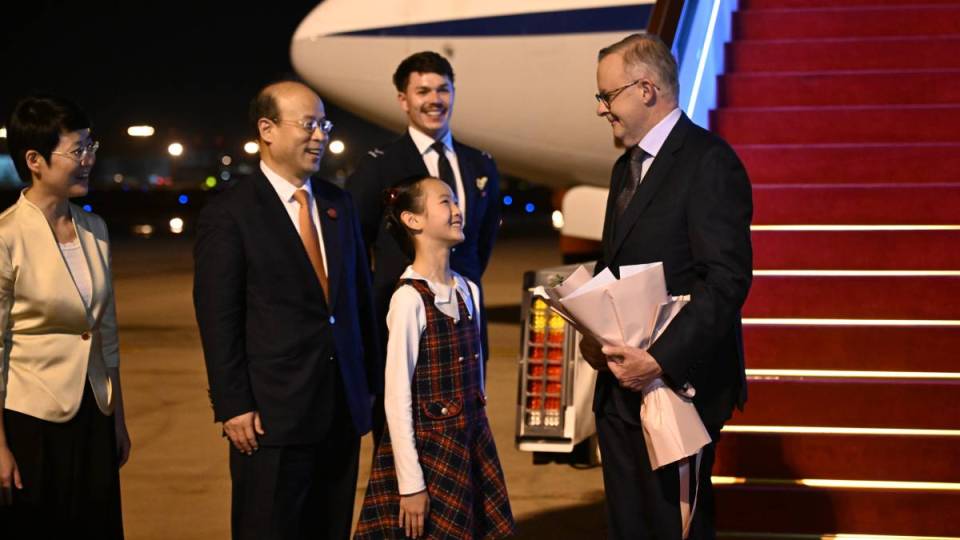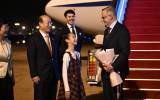


Prime Minister Anthony Albanese says he is seeking to set up an open dialogue with the Chinese government as part of his trip to the country.
Mr Albanese arrived in Shanghai on Saturday evening AEDT, becoming the first Australian prime minister to visit China – Australia’s largest trading partner – in seven years.
After receiving a red-carpet welcome by China’s top diplomat in Australia Xiao Qian and Australia’s ambassador to China Graham Fletcher, he attended the opening banquet of the China International Import Expo that same evening.
Speaking after the banquet dinner, which was hosted by Chinese Premier Li Qiang, the prime minister reaffirmed the importance of ties with China.
“It is in Australia’s interests to have a positive and constructive and open and respectful dialogue with our major trading partner,” he said.
“And that’s what I hope to achieve over the coming days where I’ll be meeting with President Xi, Premier Li and other leaders here in China.”
Tweet from @AlboMP
Unsettled backdrop
The three-day visit comes after the height of a diplomatic spat in 2020, which led to Beijing imposing $20 billion worth of trade bans on Australian exports. That has since been reduced to $2 billion.
China is reviewing its ban on Australian wine, worth $1.2 billion, and is expected to remove the sanctions at the end of a five-month process.
The remaining sanctions apply to rock lobster and some abattoirs.
China’s state media hailed the prime minister’s trip as heralding a new starting point for bilateral relations between the two nations.
But the government is under no illusion the relationship will return to what it was before the tensions emerged.
The prime minister pledged to raise difficult issues, including consular cases, trade and the South China Sea during his visit.
Before his departure, Mr Albanese reaffirmed his pledge to raise the detention of Australian writer Yang Hengjun, who has spent more than four years behind bars over accusations of espionage.
Dr Yang’s family pleaded with Mr Albanese in the days leading up to his visit, to make it clear to Beijing the relationship with Canberra could not be stabilised until he was released from prison.
China released Australian journalist Cheng Lei from detention, after she spent more than three years behind bars, ahead of Mr Albanese’s visit.
On the itinerary
Mr Albanese will attend the trade show on Sunday, where about 200 Australian companies will be represented.
He will meet with Australian producers at their stalls and will attend a business reception hosted by Tourism Australia.
Chinese President Xi Jinping is expected to appeal to Mr Albanese for Australia’s support for his country’s bid to join the 12-nation Comprehensive and Progressive Agreement for Trans-Pacific Partnership.
But the prime minister won’t back Beijing’s application and is expected to reiterate that the bloc has the highest standards for entry, and will need the unanimous support of members to allow new nations in.
China believes its application to join the trans-Pacific trade agreement is crucial to upgrading economic co-operation with Australia.
—AAP










